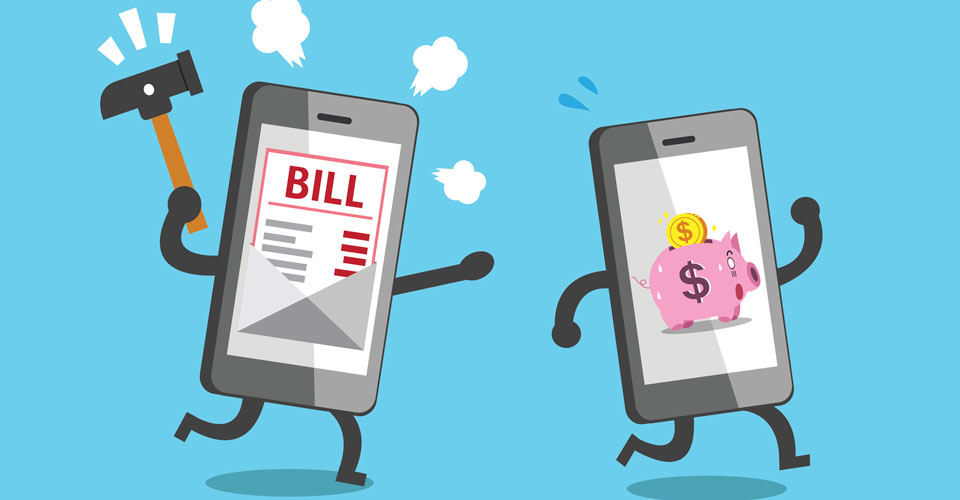
The other evening, I took the time to catchup with a good friend over the phone. He and I originally met more than a decade ago over a shared interest and along the way, I somehow ended up being my friend’s accountant. He is a very clever guy and can recite reams of data and information about France’s train system. However, he is very uncomfortable with technology and only started using a smartphone for the first time 3 years ago.
During the past few months, I noticed that his phone bill was abnormally large, way larger than should be the case even with heavy usage. When I asked him why his answer was that he simply didn’t know. Further investigation with his phone bills, that he had never looked at, revealed that all of his extra use was down to calls and texts sent abroad. Being ill at ease with technology, WhatsApp was something he knew nothing about though he did use Facebook messenger. Over a video call, we tried to install WhatsApp on his phone but hit various obstacles such as a never used Gmail address and a smartphone that somehow missed Google Play. Eventually, the problem was sorted and I’m pleased to report that my friend will now use WhatsApp to correspond with contacts abroad.
This not so uncommon experience can teach a lot of simple yet often forgotten lessons to current and future leaders.
Be situationally aware
Situational awareness is a term that I like as I find that it best describes the sensation of being in control and conscious of where one’s is going. Here my friend lacked it in some respects and he paid the price of being situationally unaware. He was only vaguely unaware that his actions of sending texts abroad had a cost. He was also unaware that many different ways existed to send messages abroad for free. Perhaps even more worryingly, he was unaware that his phone bill was excessively high until I pointed it out to him and started asking questions.
Because he was situationally unaware, he couldn’t find ways to reduce his phone bills and he couldn’t act appropriately. This example seems mundane but I have seen similar versions of it happening all the time in the wider world. Many times, I spoke with presidents of struggling Toastmasters groups who couldn’t tell me how many members their group had or even how much money they had in the bank! As such they simply couldn’t take decisions to turn their groups around as they lacked basic information and data or had no idea what success looked like in factual terms.
Would you drive a car without mirrors? Of course, you wouldn’t! So, in this case why attempt to lead when you don’t have any information or data at your fingertips. Knowledge is power after all and power is leading …
Always ask Why?
I had pointed out to my friend that I felt he had to look at his phone bills for the past few months. Yet the status quo persisted until it was clear that he didn’t know why his bills were higher than they should be. It somehow never occurred to him to ask why and my initial approaches were met by “Phoning is expensive, that’s how it is!”
Sounds familiar?
Very often we as leaders end-up inheriting situations that don’t seem quite right at first. However, any doubts we may are always pacified by claims that “things have always been done this way” or “this is how it is done” or “I don’t know how this started …” Beating the power of inertia, leading any kind of change process or even leading full stop begins with asking why. This simple yet powerful question can help us uncover the motivation of others. It can enable us to understand why something that seems daft at first sight ended up being the way it is. It can also lead us to uncover abnormalities in a process or an organisation.
When you are speaking or presenting, asking yourself why you are doing this speech or presentation can help you structure it. Asking this why is one of the first thing I teach in my courses or do with my coaching clients.
Curiosity will always be rewarded
In the end, our investigations will save my friend several dozens of euros each month on his phone bill. Asking why and being curious about something that stood out led to financial rewards. Curiosity can reward someone in almost any kind of way.
I have a love/hate relationship with one of my procrastination habits. I’m naturally curious and won’t resist the urge of typing something on Wikipedia. A result of this is that I’ve accumulated an endless treasure trove of information in my head. It served me countless time while doing impromptu speaking in Toastmasters. But it also helped me connect with others too. Typically, when I meet someone I try to find out where they are from. Once I met somebody that was Russian-Lithuanian and immediately threw in “Oh are you from Ignalina? I read it’s the only Russian majority city in Lithuania.” Guess what? she was from this city and from that point onwards we had an instant connection.
Curiosity about the industry in which we operate as leaders, the products we sell or the technology we work in. Can be the secret sauce that gives us an edge over everybody else. While others are still trying to learn the basics, you powered by curiosity will already know them and be able to make decisions accordingly as a result!
1 thought on “What a hefty phone bill can teach about leadership”